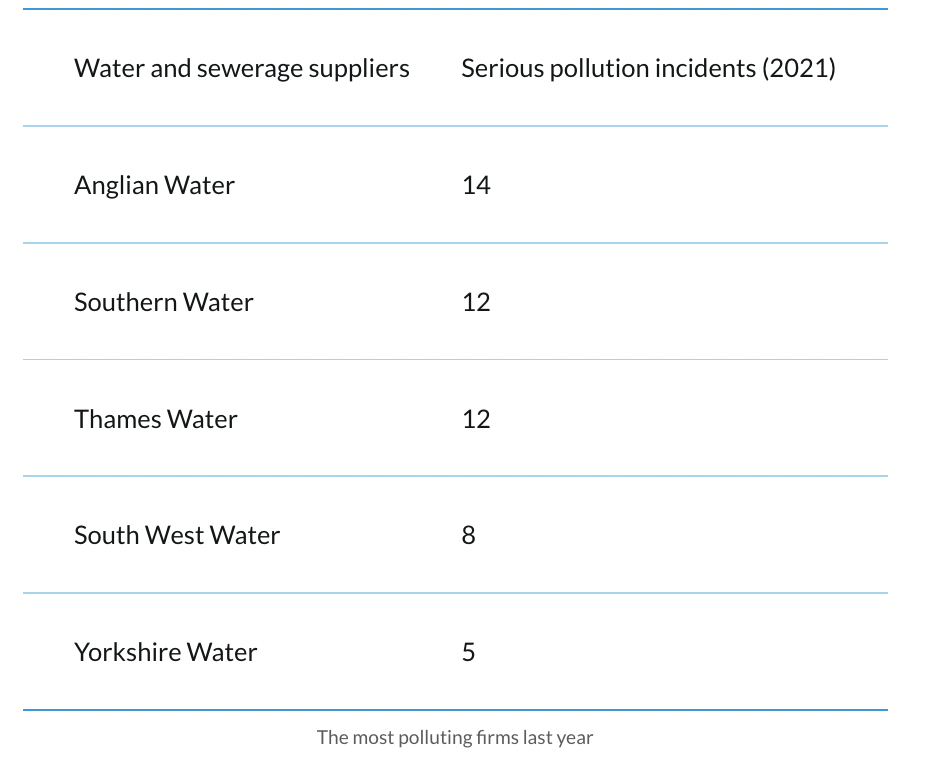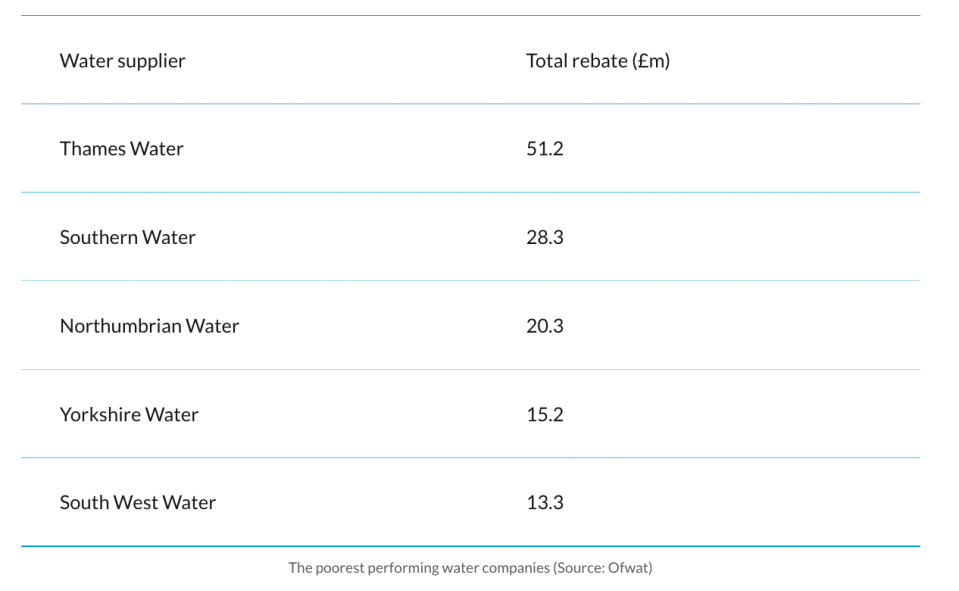Tuesday, October 11, 2022 3:44 p.m
It would cost hundreds of billions of pounds to repair Britain’s network of pipelines, reservoirs and treatment plants to develop a modern system that separates sewage and rainwater, warned Environment Agency chief executive Sir James Bevan.
He told the House of Lords of Lords today that refurbishing a centuries-old sewage system is possible but that it is a “£100-200billion problem”.
This would potentially make repairing the country’s water system more expensive than the Covid furlough scheme and household energy support package combined.
Bevan said: “The cleanest solution, the obvious solution, is a modern system that separates sewage and rainwater – and those things exist. But we estimate the cost of converting the whole country to this system at £100-200 billion.
“So there needs to be a debate about whether that’s the best use of that money, or do you want to put it into other things that might be better for water quality?”
He explained that the Victorians were the first to build the British canal overflow system, designed to divert water and diluted sewage into large bodies of water such as rivers and seas during periods of high rainfall.
Although this is no longer an ideal wastewater process, he suggested improving performance, e.g. B. Fixing business failures at sewage treatment plants and repairing leaking pipes that would be more viable than retrofitting the entire water system.
Continue reading
Ofwat cracks down on water companies with proposals to regulate dividends
A lack of government funding dilutes measures
The House of Lords Industry and Regulatory Committee is conducting a wide-ranging inquiry into the performance of regulator Ofwat amid concerns about river sanitation and the poor performance of water utilities in tackling leaks and environmental damage.
Along with concerns about the cost of repairing the sewage system, Bevan argued that the agency’s ability to fund law enforcement was hampered by a lack of finance.
The Environment Agency is not allowed to use the £200m in inputs raised by water companies each year to fund law enforcement, and instead relies on government grants to fund its work through the court.
Bevan said funds have “shrunk” over the past 10 years, which “has put pressure on the number of people and resources available to law enforcement.”
That means it instead pursued internal enforcement actions rather than fighting companies through the legal system.
Enforcement action occurs when a water company admits to a crime and voluntarily provides information.
The environmental agency then waives prosecution in exchange for funding full repair of the damage.

He said: “The advantage of this is that the money goes straight back into repairing the environment, whereas obviously if they get a fine in court the money goes to the Treasury. Law enforcement is one of the key weapons in our arsenal – but we do less of it. This is partly due to a lack of resources. I think that’s also because we’re expanding our range of options.”
Nonetheless, he confirmed to the committee that the agency would issue jail terms for bosses who break the law.
Bevan explained: “Directors can go to jail but it’s a high bar which these companies have obviously avoided up until now. So we haven’t seen prison sentences for an employee of a water company. But we would not hesitate to press them if we felt the circumstances and evidence warranted it.”
This follows former chairwoman Emma Howard Boyd, who earlier this year called for tougher measures to prevent rule-breaking this summer.
Since 2015, EA’s enforcement actions against water utilities have netted over £138m in fines, but this has seemingly had little impact on breaches of the law.
The government declined to comment.
Continue reading
A drought of willpower: Britain’s struggle to meet its water needs
The agency promises to increase the performance of the industry
Since the Environment Agency began installing new monitoring devices at over 2,000 treatment plants across the country, several water utilities have announced they may not be treating the wastewater properly.
Six water companies have faced enforcement actions to determine whether they are meeting their environmental obligations in relation to the treatment of wastewater.
These include Anglian Water, Northumbrian Water, Southern Water, Thames Water, Wessex Water and Yorkshire Water.
Ofwat and the Environment Agency also announced a separate investigation into all water and wastewater companies last November.
Bevan argued that population growth and climate change have led to increased rainfall and wastewater, and worsened problems for businesses.

He also believed there is greater public awareness of sewer overflows and a call for them to be fixed after media reports of leaks and poor performance by water companies.
Bevan said: “I don’t think even the water companies were aware of the scale of what was going on because until a couple of years ago people didn’t really think it was an issue of any particular concern. There has been greater public and media scrutiny of what is happening, which I welcome. This has helped both us and the water utilities focus on the issue.”
Earlier this month Environment Secretary Ranil Jayawardena confirmed he would table proposals to increase the civil penalty for water companies that pollute by 1,000 times – from £250,000 to as much as £250m.
There were 62 serious pollution incidents by water companies last year – up from 44 in 2020.
Watchdog Ofwat has also been active in recent weeks, giving clients £150million for missed targets in supply disruptions, pollution incidents and internal sewer flooding.
Continue reading
Customers get £150m rebate from underperforming water companies
Similar tagged content:
sections
categories
Related topics



Comments are closed.